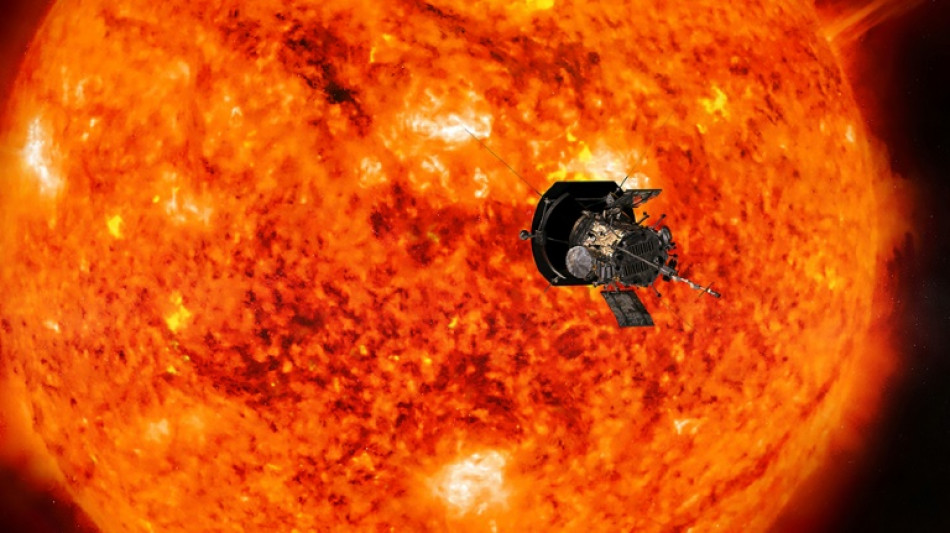
-
 Wild weather leaves mass blackouts in Australia
Wild weather leaves mass blackouts in Australia
-
China consumption slump deepens as February prices drop

-
 Phone bans sweep US schools despite skepticism
Phone bans sweep US schools despite skepticism
-
Some 200 detained after Istanbul Women's Day march: organisers

-
 'Grieving': US federal workers thrown into uncertain job market
'Grieving': US federal workers thrown into uncertain job market
-
Remains of murdered Indigenous woman found at Canada landfill

-
 Women will overthrow Iran's Islamic republic: Nobel laureate
Women will overthrow Iran's Islamic republic: Nobel laureate
-
Women step into the ring at west African wrestling tournament

-
 Trump's tariff rollback brings limited respite as new levies loom
Trump's tariff rollback brings limited respite as new levies loom
-
Hackman died of natural causes, a week after wife: medical examiner

-
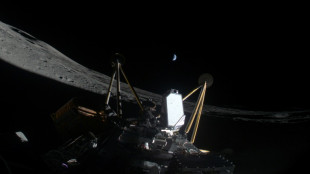 Oops, we tipped it again: Mission over for sideways US lander
Oops, we tipped it again: Mission over for sideways US lander
-
Cyclone Alfred downgraded to tropical low as it nears Australia

-
 Global stocks mixed as Trump shifts on tariffs weighs on sentiment
Global stocks mixed as Trump shifts on tariffs weighs on sentiment
-
Trump says dairy, lumber tariffs on Canada may come soon

-
 Trump cuts $400 mn from Columbia University over anti-Semitism claims
Trump cuts $400 mn from Columbia University over anti-Semitism claims
-
US Fed chair flags policy uncertainty but in no rush to adjust rates

-
 Adopted orphan brings couple 'paradise' in war-ravaged Gaza
Adopted orphan brings couple 'paradise' in war-ravaged Gaza
-
Oops, we tipped it again: Mission over for private US lander
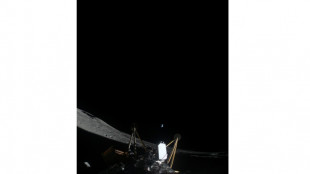
-
 Greenland's mining bonanza still a distant promise
Greenland's mining bonanza still a distant promise
-
Pope 'stable' as marks three weeks in hospital with breathless audio message

-
 Shares slump on Trump tariffs tinkering, jobs
Shares slump on Trump tariffs tinkering, jobs
-
Mission over for private US lander after wonky landing
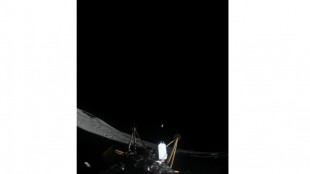
-
 Thousands stranded as massive WWII bomb blocks Paris train station
Thousands stranded as massive WWII bomb blocks Paris train station
-
UK court cuts longest jail terms on activists, rejects 10 appeals

-
 US hiring misses expectations in February as jobs market faces pressure
US hiring misses expectations in February as jobs market faces pressure
-
S.Sudan heatwave 'more likely' due to climate change: study

-
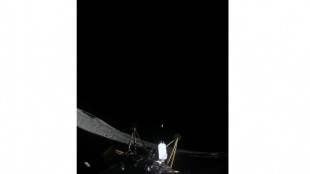 US company says Moon mission over after landing sideways again
US company says Moon mission over after landing sideways again
-
Trump says farmers keen to quit 'terrible' S. Africa welcome in US

-
 US stock markets rise as investors track Trump tariffs, jobs
US stock markets rise as investors track Trump tariffs, jobs
-
US hiring misses expectations in February, jobs market sees pressure

-
 Disco, reggae on King Charles's 'eclectic' Apple playlist
Disco, reggae on King Charles's 'eclectic' Apple playlist
-
Australian casino firm strikes deal to avoid liquidity crunch

-
 Deposed king's grandson makes low-key return to Egypt
Deposed king's grandson makes low-key return to Egypt
-
Stock markets, bitcoin down as Trump policies roil markets

-
 Bangladesh student leader aims to finish what uprising began
Bangladesh student leader aims to finish what uprising began
-
Japan, Britain stress free trade in Tokyo talks

-
 Spain targets men's 'deafening silence' in gender violence battle
Spain targets men's 'deafening silence' in gender violence battle
-
Spain under pressure to abort nuclear energy phase-out

-
 Hungary femicide sparks outcry on gender violence
Hungary femicide sparks outcry on gender violence
-
Trial of Maradona's medics to start four years after star's death

-
 Women spearhead maternal health revolution in Bangladesh
Women spearhead maternal health revolution in Bangladesh
-
Apple step closer to seeing end of Indonesia iPhone sales ban

-
 China's exports start year slow as US trade war intensifies
China's exports start year slow as US trade war intensifies
-
Asian stocks, bitcoin down as trade uncertainty roils markets

-
 China tariffs aimed at Trump fan base but leave wiggle room
China tariffs aimed at Trump fan base but leave wiggle room
-
Musk's SpaceX faces new Starship setback
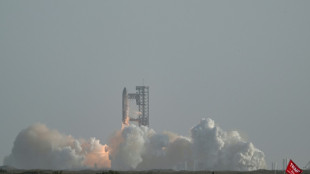
-
 Trump signs executive order establishing 'Strategic Bitcoin Reserve'
Trump signs executive order establishing 'Strategic Bitcoin Reserve'
-
Australian casino firm scrambles for cash to survive

-
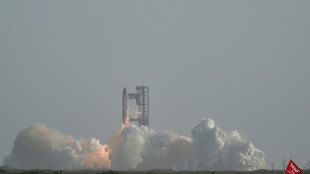 Musk's SpaceX faces setback with new Starship upper stage loss
Musk's SpaceX faces setback with new Starship upper stage loss
-
US and European stocks gyrate on tariffs and growth


NASA probe makes closest ever pass by the Sun
NASA's pioneering Parker Solar Probe made history Tuesday, flying closer to the Sun than any other spacecraft with its heat shield exposed to scorching temperatures of more than 1,700 degrees Fahrenheit (930 degrees Celsius).
Launched in August 2018, the spaceship is on a seven-year mission to deepen scientific understanding of our star and help forecast space-weather events that can affect life on Earth.
Tuesday’s historic fly-by should have occurred at precisely 6:53am (1153 GMT), although mission scientists will have to wait until Friday for confirmation as they lose contact with the craft for several days due to its proximity to the Sun.
If the distance between Earth and the Sun is the equivalent to the length of an American football field, the spacecraft should have been about four yards (meters) from the end zone at the moment of closest approach – known as perihelion.
"This is one example of NASA's bold missions, doing something that no one else has ever done before to answer longstanding questions about our universe," Arik Posner, Parker Solar Probe program scientist said in a statement on Monday.
"We can't wait to receive that first status update from the spacecraft and start receiving the science data in the coming weeks."
So effective is the heat shield, that the probe’s internal instruments remain near room temperature -- around 85F (29C) -- as it explores the Sun's outer atmosphere, called the corona.
Parker will also be moving at a blistering pace of around 430,000 mph (690,000 kph), fast enough to fly from the US capital Washington to Tokyo in under a minute.
"No human-made object has ever passed this close to a star, so Parker will truly be returning data from uncharted territory," said Nick Pinkine, mission operations manager at the Johns Hopkins Applied Physics Laboratory (APL) in Laurel, Maryland.
"We're excited to hear back from the spacecraft when it swings back around the Sun."
By venturing into these extreme conditions, Parker has been helping scientists tackle some of the Sun's biggest mysteries: how the solar wind originates, why the corona is hotter than the surface below, and how coronal mass ejections -- massive clouds of plasma that hurl through space -- are formed.
The Christmas Eve flyby is the first of three record-setting close passes, with the next two -- on March 22, 2025, and June 19, 2025 -- both expected to bring the probe back to a similarly close distance from the Sun.
H.Cho--CPN
